Barbados Government and UN System in the Caribbean host Annual Coordination Meeting to review achievement of the Sustainable Development Goals in the region
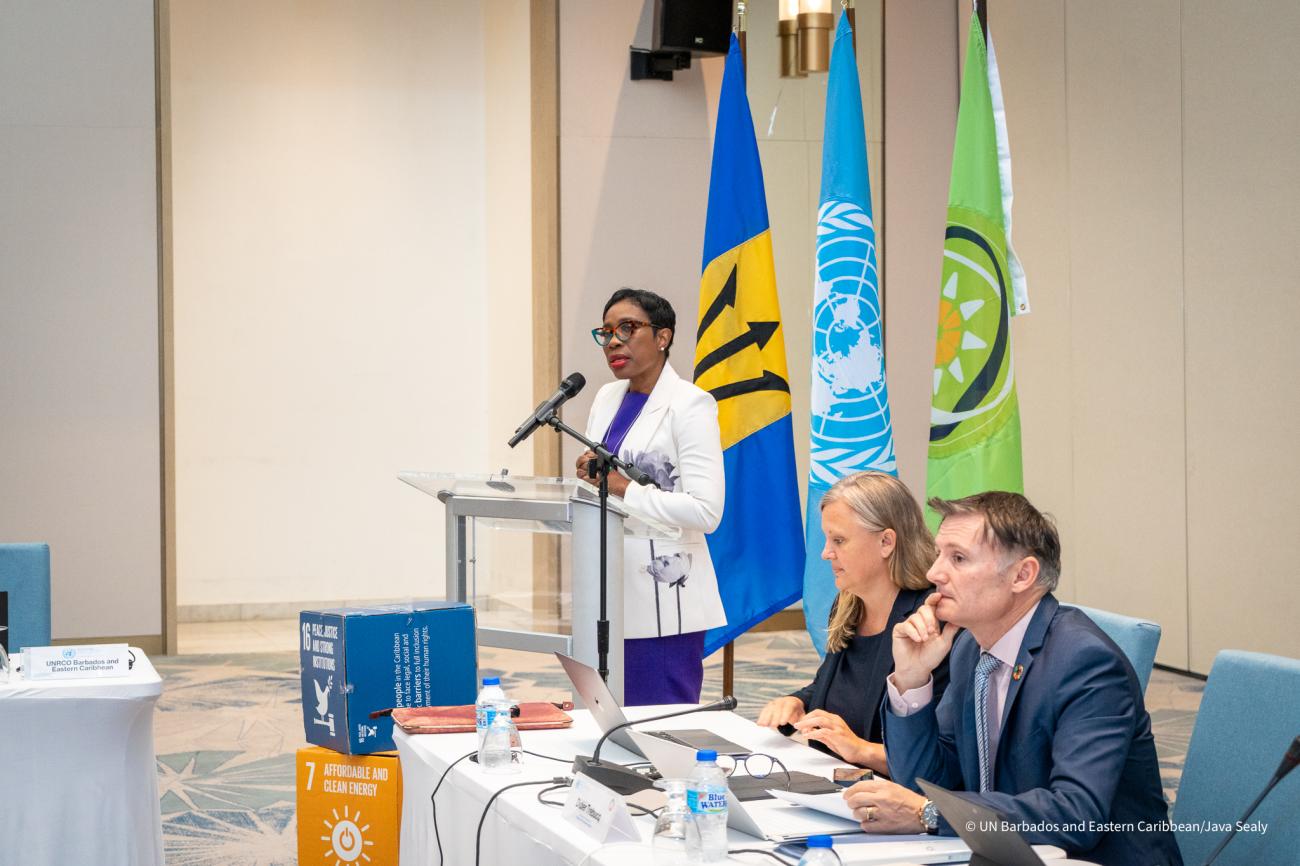
The two-day forum saw discussions on food systems, data and digitalisation, resilience to climate change equality and shared prosperity and economic resilience.
The region’s progress on implementation of the Sustainable Development Goals (SDGs), and the efficacy of the United Nations partnership in the English and Dutch-speaking Caribbean, came under the microscope this week, as regional Governments joined with the United Nations System to assess their joint response to regional development priorities under the current UN Multi-Country Sustainable Development Cooperation Framework (MSDCF).
The opportunity came during the Annual Coordination Meeting and meeting of the MSDCF Joint Steering Committee, which is part of the governance mechanism for its implementation, held at the Wyndham Grand Barbados Sam Lords Castle Resort in Barbados, on 6 – 7 March 2024.
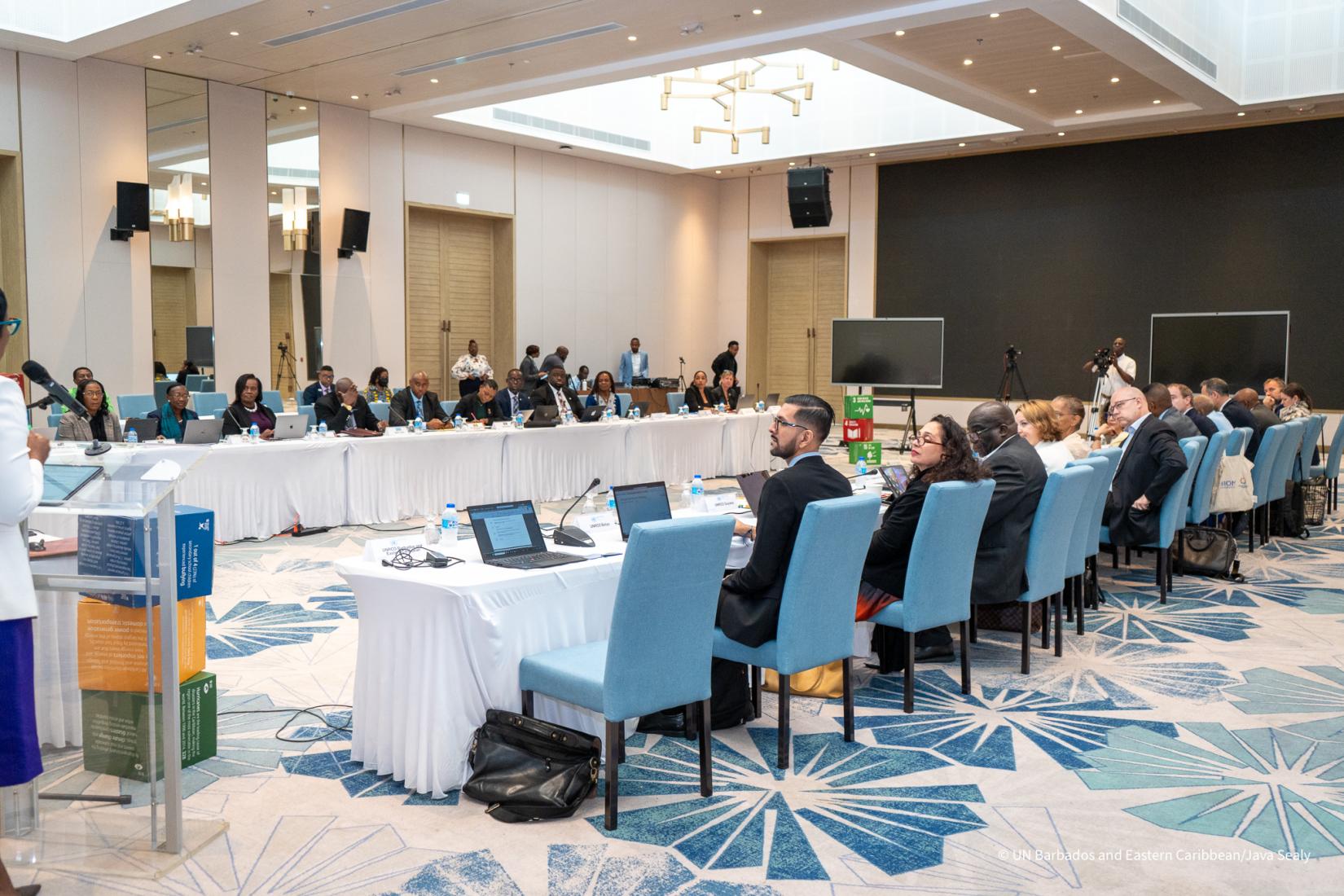
The Annual Coordination Meeting, which was also hybrid, attracted participation from high-level Government representatives from 15 countries, CARICOM and the OECS, and included UN Resident Coordinators from six jurisdictions - Guyana, Jamaica, Belize, Suriname, Trinidad and Tobago and Barbados and the Eastern Caribbean.
In his welcome remarks, UN Resident Coordinator for Barbados and Eastern Caribbean, Didier Trebucq, thanked Government partners for their participation in the meeting convened to facilitate review of their efforts in 2023, the second year of implementation of the regional Cooperation Framework.
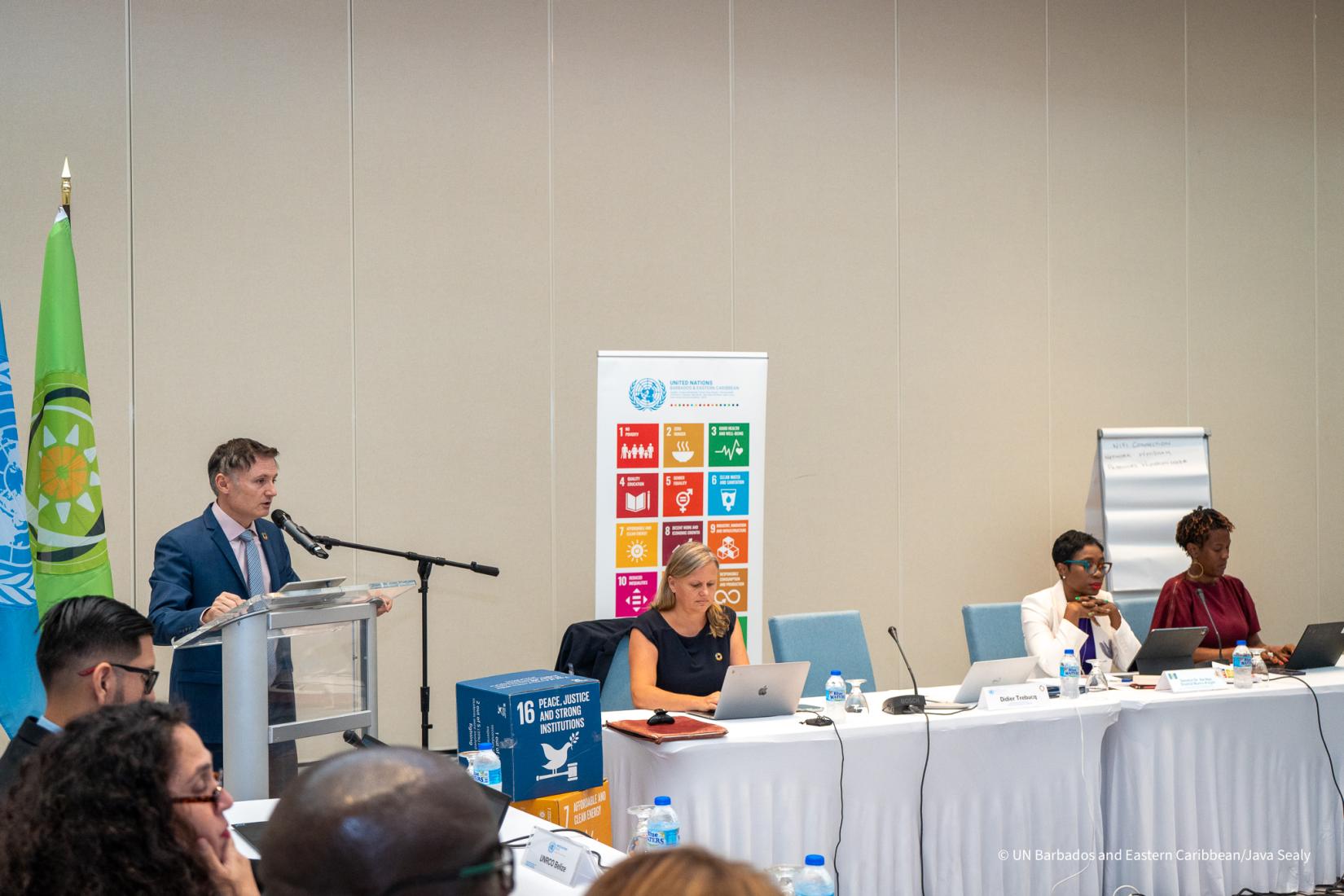
“Ahead of the 4th SIDS Conference, today is special, a crucial moment to take stock of the progress achieved in year two of the MSDCF, discuss strategies for SDG acceleration and seize the opportunity of what the UN has to offer,” he stated, while noting that despite the ongoing challenges of the past years and the multiple and compound crises facing the region, “our partnership with government remained strong and we were able to support our countries to achieve a number of transformational results .” Mr. Trebucq cited achievements in the areas of advancing the food security agenda, fostering sustainable livelihoods, scaling digital transformation, and enhancing disaster risk reduction, among others under the MSDCF.
Minister in the Prime Minister’s Office, Barbados, Dr. the Hon, Shantal Munro-Knight, who co- chaired the MSDCF Joint Steering Committee along with the Resident Coordinator, also reiterated the need to further strengthen and leverage partnerships towards the global goals. She challenged however that the “success of the regional framework has to be judged by the extent that it brings people and communities along, both in terms of benefits and ownership”.
“As governments, as partners, we must instil an ethos that the SDGs are not about us as the Government only ...this is a shared responsibility. There will be consequences for all of us if we are not able to deliver on the SDGs for our people,” she underlined.
Tonni Brodber, UN Women Representative and agency co-chair of the MSDCF Joint Steering Committee also addressed the forum noting “ A key comparative advantage of the UN is our combined technical knowledge and know-how across the priorities identified in the Sustainable Development Goals.”
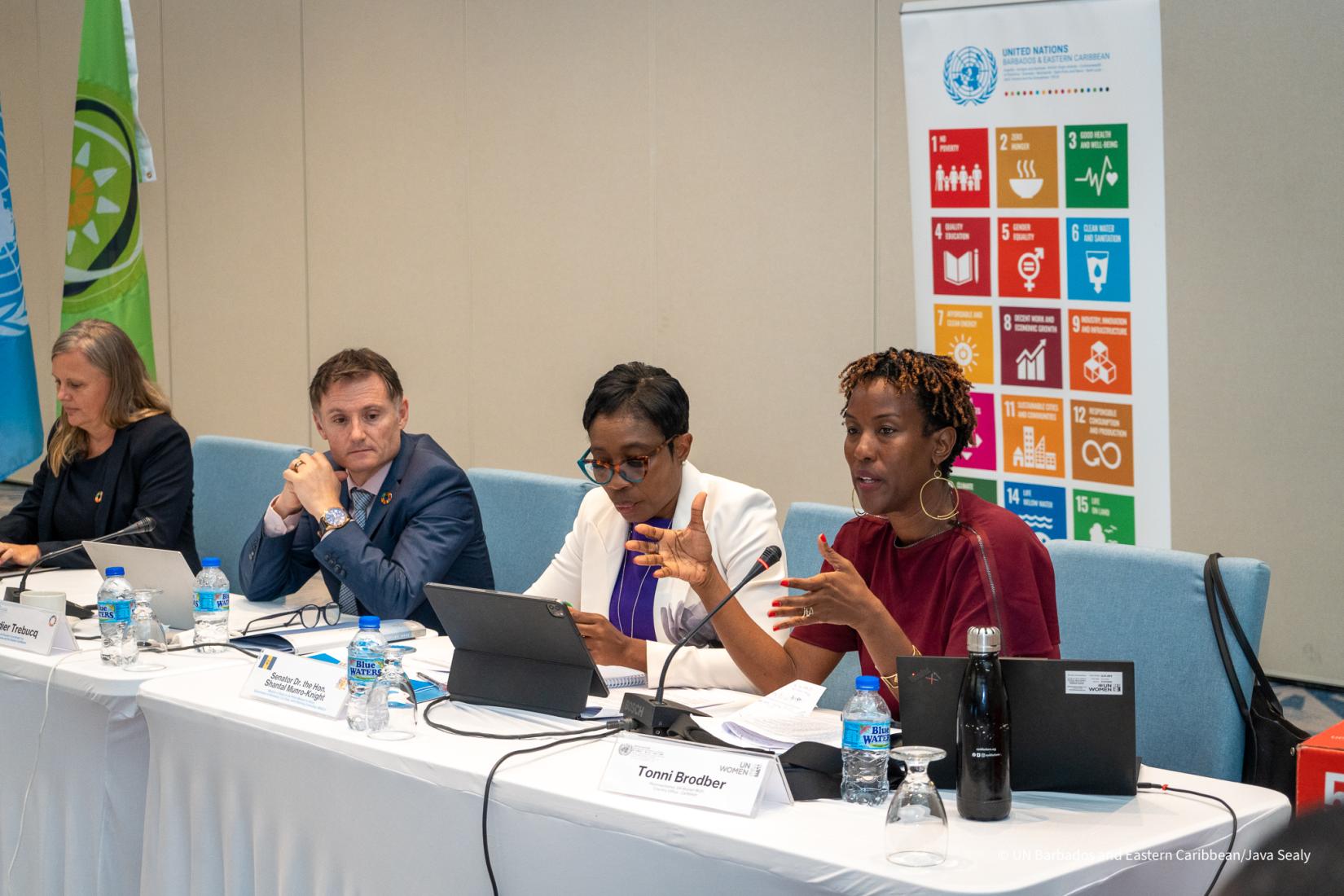
The two-day forum saw discussions on food systems, data and digitalisation, resilience to climate change equality and shared prosperity and economic resilience, among other priorities, within the context of how the UN can support countries across the region to accelerate progress towards the Sustainable Development Goals, with agreement on strategies for strengthening this mechanism.
Interventions from member states addressed whether the Cooperation Framework delivered effective and efficient programming in line with national priorities, as well as gaps and opportunities for SDG acceleration. UN leadership discussed progress, gaps, and opportunities for SDG acceleration through the UN’s six prioritised transitions: (1) food systems; (2) energy access and affordability; (3) digital connectivity; (4) education; (5) jobs and social protection; and (6) climate change, biodiversity loss and pollution.
The Multi Country Sustainable Development Cooperation Framework (MSDCF) is the most important instrument for planning and implementation of the UN development activities towards the fulfilment of the 2030 Agenda in the Caribbean. The UN and the governments in the region are committing to contribute to significant structural changes in the economies and governance systems of participating countries towards: Economic resilience and shared prosperity; Equality and well-being; Resilience to climate change and shocks, and sustainable natural resource management; and peace, safety, justice, and the rule of law.
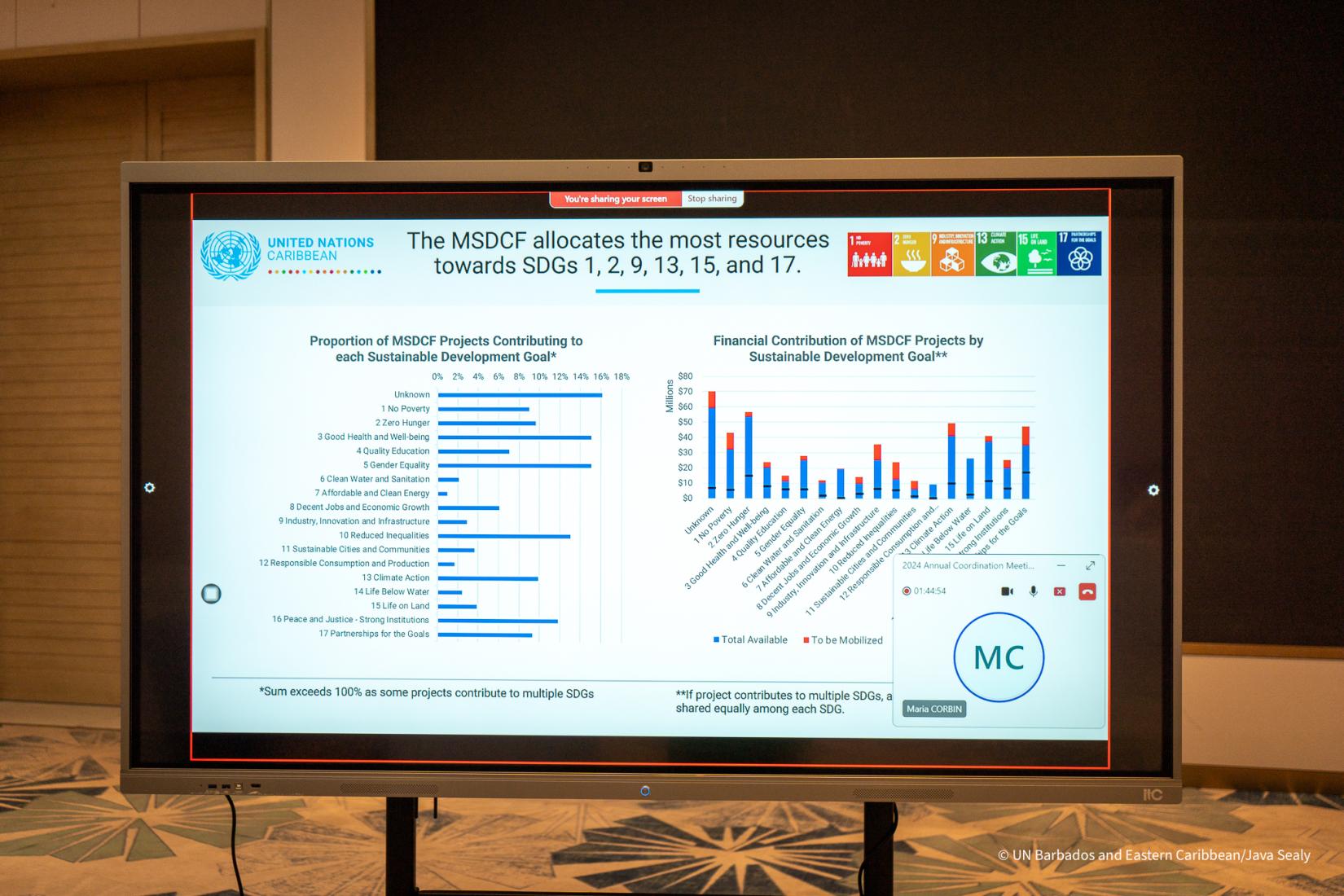
The Joint Steering Committee comprises ministerial representatives of the 22 country signatories to the Cooperation Framework, as well as representatives from 23 UN Agencies, Funds and Programmes that implement development projects in the region.
..........................................................
** Please find photographs from the event on the United Nations Caribbean Flickr.
Media Contact:
Carol A. Gaskin
Communications and Advocacy Officer
UN Resident Coordinator Office
Email: carol-ann.gaskin@un.org ; Tel: +1(246) 467-6110; Mobile: +1(246) 832-6110

